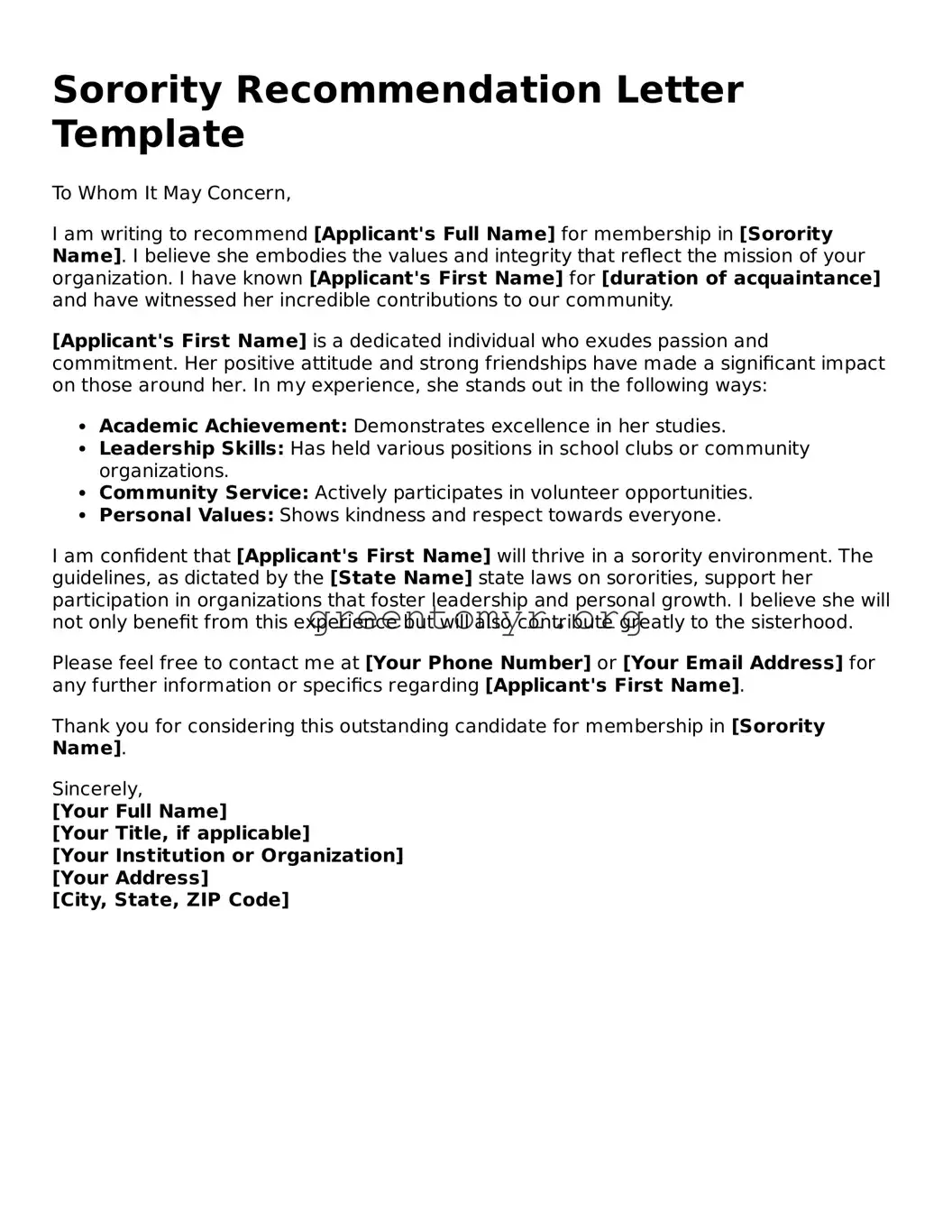What is a Sorority Recommendation Letter?
A Sorority Recommendation Letter is a formal note or document that provides information about a potential new member to a sorority. This letter is typically written by an alumna of the sorority or a member of the Greek community who can speak to the candidate's character, accomplishments, and potential fit within the sorority's values and community.
Who should write a Recommendation Letter?
Recommendation Letters are often written by sorority alumnae who have a personal or professional relationship with the candidate. This could include high school teachers, club advisors, family friends, or older college students. Ideally, the writer should have a strong understanding of the sorority’s values to effectively convey how the candidate aligns with them.
Why do I need a Recommendation Letter?
Many sororities use these letters as part of their recruitment process to assess potential new members before they participate in formal recruitment events. A strong Recommendation Letter can enhance a candidate's application, showcasing their strengths and making them stand out among other potential recruits.
What should be included in a Recommendation Letter?
A comprehensive Recommendation Letter should include the following elements:
-
Introduction:
The writer should introduce themselves and explain their connection to the candidate and the sorority.
-
Personal Qualities:
Highlight the candidate's character, values, and leadership skills.
-
Achievements:
Mention any relevant accomplishments, such as academic honors or community service.
-
Fit with Sorority:
Discuss why the candidate would be a good match for the sorority based on its values and mission.
While there may not be a strict format universally accepted by all sororities, it’s generally advised to use a professional tone and structure. A typical letter might include an introduction, body paragraphs detailing the candidate’s qualifications, and a concluding statement that encourages the sorority to consider the candidate favorably. Including your contact information is also advisable for any follow-up questions.
When should the Recommendation Letter be submitted?
Recommendation Letters should ideally be submitted as early as possible, often by specific deadlines set by the sorority. Many sororities require these letters before recruitment begins, which can be several weeks or months in advance of recruitment events. It is important to check the specific sorority’s policies regarding submission timelines.
Can I ask multiple people to write letters for me?
Yes, you can ask multiple individuals to write Recommendation Letters for you. In fact, having more than one letter can provide diverse perspectives on your strengths and character. However, be sure to choose writers who genuinely know you well and can provide a detailed and sincere assessment of your qualifications.
What if I don’t know anyone who can write a Recommendation Letter?
If you do not have a personal connection with anyone in the sorority, consider reaching out to high school teachers, coaches, or community leaders who know you well. Additionally, networking through existing members or alumnae may help you find someone willing to write a letter on your behalf. It’s crucial that the writer is credible and can speak positively about you.
The Sorority Recommendation Letter form can typically be found on the sorority’s official website or through the recruitment office at your college or university. It may also be available through the recommendations section of the recruitment guidelines specific to each sorority. If you are having difficulty locating the form, contacting the local chapter directly can provide guidance.
